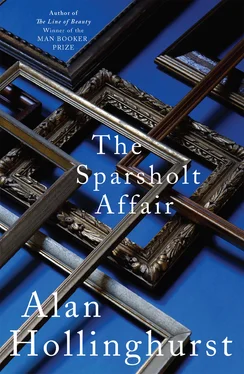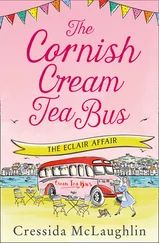Alan Hollinghurst - The Sparsholt Affair
Здесь есть возможность читать онлайн «Alan Hollinghurst - The Sparsholt Affair» весь текст электронной книги совершенно бесплатно (целиком полную версию без сокращений). В некоторых случаях можно слушать аудио, скачать через торрент в формате fb2 и присутствует краткое содержание. Год выпуска: 0101, Издательство: Pan Macmillan, Жанр: Старинная литература, на английском языке. Описание произведения, (предисловие) а так же отзывы посетителей доступны на портале библиотеки ЛибКат.
- Название:The Sparsholt Affair
- Автор:
- Издательство:Pan Macmillan
- Жанр:
- Год:0101
- ISBN:нет данных
- Рейтинг книги:5 / 5. Голосов: 1
-
Избранное:Добавить в избранное
- Отзывы:
-
Ваша оценка:
- 100
- 1
- 2
- 3
- 4
- 5
The Sparsholt Affair: краткое содержание, описание и аннотация
Предлагаем к чтению аннотацию, описание, краткое содержание или предисловие (зависит от того, что написал сам автор книги «The Sparsholt Affair»). Если вы не нашли необходимую информацию о книге — напишите в комментариях, мы постараемся отыскать её.
The Sparsholt Affair — читать онлайн бесплатно полную книгу (весь текст) целиком
Ниже представлен текст книги, разбитый по страницам. Система сохранения места последней прочитанной страницы, позволяет с удобством читать онлайн бесплатно книгу «The Sparsholt Affair», без необходимости каждый раз заново искать на чём Вы остановились. Поставьте закладку, и сможете в любой момент перейти на страницу, на которой закончили чтение.
Интервал:
Закладка:
He googled again, and now the Coventry Telegraph had it, he felt the clutch of alarm at his father’s name in a headline, and scrolled in long jerks down the article, a crude cut-and-paste of all the old lumpy quotes and blown-up photos, ‘David Sparsholt at the time of his trial’ – it was a local story first and last. His own name appeared at the end, ‘an artist, who lives in London’ – he was paranoid today, but he felt the thrust of that plain provincial phrase. David and Connie’s divorce was mentioned, and Johnny again had a nearly palpable sense of her presence. She’d got away, of course. She’d had a perfectly good thirty years with Barry in Bridgwater, after her life had been publicly ruined by David. She was Connie Jefferies, a new person in a way her ex-husband could never quite be, for all his industry.
And now the overgrown slagheaps had appeared, like the steep tufted hills of a Caribbean island, exotic markers of home, and Nuneaton was announced as the next station stop.
He took a taxi from the station to the house, the driver a cheerful young Sikh whose talk at first was so beside the point of anything Johnny was doing or feeling that he entered into it gratefully and cheerfully himself. ‘No, I grew up here,’ he admitted; so did he have family in Nuneaton? Johnny smiled wistfully at the young man’s softly bearded profile, then found he was being talked to in the mirror – their eyes met. But you couldn’t land all that on a boy merely doing his job. ‘My stepmother still lives here,’ he said, tactful to both of them, and felt the thing close at his throat again for a moment. They turned into Weddington Avenue. ‘Very good area,’ said the driver. ‘The last house on the left,’ Johnny said, his horror of meeting June abruptly darker when he saw the firs, the brick gateposts, the light on in the sitting room. They came in at a respectful speed over the deep gravel, with a sound as if the car drew its own wash.
Did he still have a key to the house? – certainly not on him. It was the place even June called ‘home’ when she spoke of his coming here; but he stood with his bag in the porch and after the driver had gone he rang the bell.
June opened the door, small, perfect, no thought of smiling – he stepped in, dropped his bag, found he’d kissed her on the cheek. ‘I’m so sorry,’ he said. They stood and spoke stiffly in the hall, which he was keenly aware of today as hers. He sensed at once that he mustn’t look at anything with curiosity or even affection, which she might misread, as irony or possessiveness. The primary impact of the drugs had long worn off, but he was still largely attuned, he saw through things and round things with intuitive speed and feeling; perhaps he saw too much. Nothing, as yet, had been said, but he assumed all this had been left to her.
The house held the strangely unexpected evidence of his father’s most recent life. In the downstairs cloakroom there were rails flanking the loo, in the sitting room a hideous adjustable armchair, outsize intruder among the oak and chintz; on the coffee table a square magnifying glass. ‘I’ve put a few bits and pieces away,’ June said. A year or more’s history was elided in those first tactful glances as he talked to her, and tried to find out how she was taking things. How he was taking them himself came as a rough shock, five minutes later, when he found himself staring at the photos on the windowsill: his father in uniform, the invulnerable smile of early success, not a man Johnny remembered, an ideal one, and next to him at an angle, in a silver frame, Johnny himself, in the Sixth Form, soft-faced, wary in front of the camera – he felt a pain like a thump in the throat, the corners of his mouth pulled down as fiercely as a tragic mask: he couldn’t help it, though to June it perhaps looked unmanly, theatrical. She rested her fingers briefly on his forearm, then the touch was a push: ‘I’ll make some tea.’
Johnny stayed, recovered himself, snorted again in a bewildering access of grief, went for decency into the sunroom at the back, where he stood at the window, looking out across the lawn but seeing a brief jerky loop of his father, a momentary montage, walking, turning, smiling at him as he climbed into the parked Jensen.
June made a noise in the sitting room with the tray, and he went back to her. She looked at him with guarded curiosity, as a fellow griever who was taking it in his own way. He sat holding his cup in both hands with a sense of it as symbolic, although he was thirsty, while June ran quietly over just what had happened the day before, the shout, the fall, the ambulance. ‘Do you want to see him?’ she said – and it was almost like years ago, when she’d welcomed or discouraged the callers at his father’s office. It was a question, a decision, Johnny had dreaded, but he said yes straight away. ‘I’ll take you,’ she said, ‘in a minute. I won’t see him again myself.’ He finished his tea quickly then, and put on his coat while she got out the Golf. In six minutes they were at the hospital. She waited in the car, it wasn’t expected to be a long visit. He went in, explained, was led down long hallways to a door and shown into a room that he entered as considerately as if his father were still alive. Then he was alone with him. There was a sort of calm distinction in the completely immobile face with its eyes closed. Johnny saw the formal sadness of the moment, all its cues for feeling and reflection, but felt almost nothing – it was his father’s absence that had dealt him the primitive shock. This was just a dead man’s face, which the light of scandal might play over as readily as that of acclaim. He thought the convention was to kiss the dead parent on the brow, but a sense that that wasn’t his father’s style deterred him, and he felt he wouldn’t regret not having done so. He took out his pocketbook, moved the visitor’s chair to the head of the bed and sat down and drew him, a rapid but careful and observant sketch, five minutes’ intent work. He thought, this is what we get to do. He couldn’t remember for the life of him what colour his father’s eyes had been.
They both had a large drink at six, June a brandy and ginger ale which she took into the kitchen with her, to get on. Johnny carried his Scotch and soda upstairs, a new carpet on the landing, the bathroom re-decorated, a new walk-in shower installed. The return to the house was an oddly clear lesson in the history of his parents’ taste, long ago, of June’s restless alterations and improvements, and, still detectable, of his own taste. In his room there were pictures he’d done at school, the drawing of the Abbey which had won second prize in the Warwickshire Schools Junior Art Competition nearly half a century before.
Was he taking all this away – now, or after the funeral perhaps? Did either of them suppose he would come back to see her, or that she would want him to? ‘I’m sorry, Jonathan,’ June had said, on the way back from the hospital, ‘I feel you’ll be without an anchor’ – which was a kind remark, perhaps, or a reproachful one, since he had been there so rarely. He was touched by an uncomfortable sense of duty towards her, the woman who had made his father happy, and who had always dreaded the talk among their friends coming round to what her stepson was doing – he has a daughter, doing very well – you know he painted the Countess of Wessex – Sophie, yes – charming, apparently . . . no he’s not married . . . oh, it all came back to Dad, and the much huger embarrassment she’d shouldered already, in her blind decisive youth, in a long-sustained feat of denial: fending off reporters, pretending the wounding articles and later the books about her husband didn’t exist. They’d lived together for forty-five years, and had known each other for two or three years before the crisis and divorce. She had come to dinner sometimes, when his mother was away. What he’d hated from the start, far more than the corruption case, which he’d never fully grasped, or the intimate shame of the Haxby business, was David’s sequence of betrayals of Connie, begun more than seventy years ago now, with poor besotted Evert. It was in his power, it was how he got his way.
Читать дальшеИнтервал:
Закладка:
Похожие книги на «The Sparsholt Affair»
Представляем Вашему вниманию похожие книги на «The Sparsholt Affair» списком для выбора. Мы отобрали схожую по названию и смыслу литературу в надежде предоставить читателям больше вариантов отыскать новые, интересные, ещё непрочитанные произведения.
Обсуждение, отзывы о книге «The Sparsholt Affair» и просто собственные мнения читателей. Оставьте ваши комментарии, напишите, что Вы думаете о произведении, его смысле или главных героях. Укажите что конкретно понравилось, а что нет, и почему Вы так считаете.












